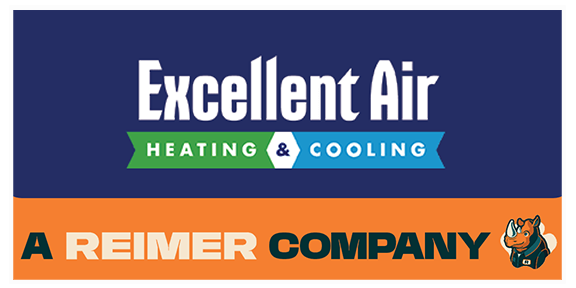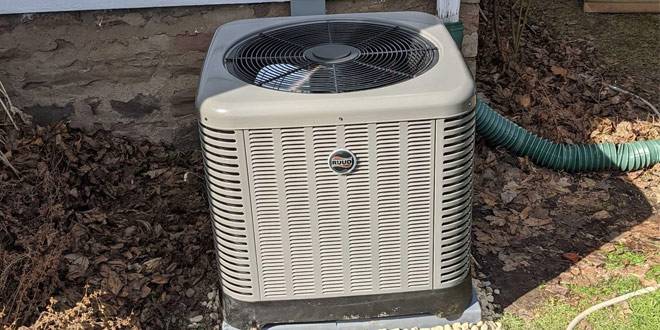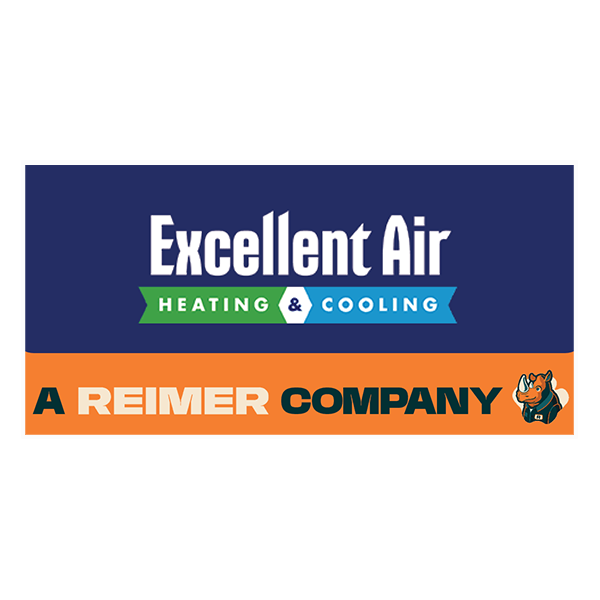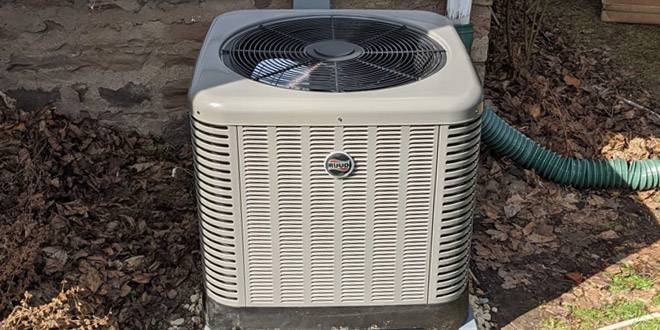
Are you tired of the constant hum from your HVAC system in Rochester, NY? Noise reduction in HVAC Systems can be a blessing. We have the perfect innovative HVAC solution. Our new blog post delves into practical tips for a quieter home, focusing on innovative noise reduction techniques to ensure your heating and cooling systems are seen, not heard.
HVAC Noise Reduction Tips and Tricks
Excessive noise from HVAC systems can be a significant nuisance in both homes and businesses, impacting comfort and productivity. Fortunately, there are several effective strategies to reduce HVAC noise, enhancing the tranquility of your space.
Regular Maintenance and Cleaning
Regular HVAC maintenance isn’t just about noise control; it’s a vital practice for the overall health of your HVAC system. Dirt and debris are more than just unsightly – they’re also a common source of unnecessary noise and mechanical wear.
Extended Importance: Consistent maintenance is not only crucial for noise reduction but also extends the lifespan of your HVAC system. Dirt and other residues can lead to friction and increased wear in moving parts, contributing to noise.
Detailed Action Steps: Engage a professional air conditioning and heating service to inspect and service your AC unit regularly. This should include lubricating moving parts, checking electrical connections, and ensuring the blower and coil are free from obstruction, in addition to cleaning or replacing filters and inspecting fan blades.
Soundproof HVAC Systems
An effective way to reduce HVAC noise is through soundproofing. This involves using materials that absorb or block sound waves, thus diminishing the noise that escapes into your living or working space.
Expanded Materials Use: Beyond acoustic panels and blankets, consider using mass-loaded vinyl, a dense material known for its sound-blocking qualities. This can be particularly effective in dampening compressor noise.
Comprehensive Installation Approach: When installing soundproofing materials, focus on the areas that generate the most mechanical noise. This often includes the compressor and the air handler. It’s vital to ensure that these materials don’t restrict airflow or access for maintenance.
Upgrading to a Newer, Quieter Model
As technology advances, so do the options for quieter HVAC systems. Modern units are engineered with noise reduction in mind, offering a more peaceful indoor environment along with improved efficiency.
Benefits of Advanced Technology: Newer models not only reduce noise but are also more energy-efficient and environmentally friendly. They often include features like variable-speed fans and compressors, which operate more quietly and efficiently.
Consultation for Upgrade: Work with HVAC experts who can assess your space and recommend a system that aligns with your specific needs. Consider the size, layout, and acoustic characteristics of your space when selecting a new unit.
Installing Vibration Isolation Pads
Vibrations are a major contributor to HVAC noise. Isolation pads are a simple yet effective solution to dampen these vibrations, thereby reducing the noise that resonates through the structure of your building.
Broadened Functionality: These pads not only reduce sound transmission but also protect the structural integrity of the building by minimizing vibrations.
Versatile Application: Use isolation pads for both indoor and outdoor units. They can be particularly effective for rooftop units or systems installed on upper floors.
Checking and Sealing Ductwork
The state of your ductwork plays a critical role in the overall noise level of your HVAC system. Leaks and poor insulation can lead to increased noise as well as reduced efficiency.
Comprehensive Ductwork Care: In addition to sealing leaks, inspect the ductwork for proper insulation and support. Misaligned or unsupported ducts can contribute to noise through vibrations and air flow disruptions.
Professional Assessment: Regular inspections by HVAC professionals can identify potential problem areas in ductwork before they become significant noise issues.
Using Rubber Grommets for Mounting
Rubber grommets are small but mighty tools in the battle against HVAC noise. They absorb and isolate vibrations, making them a key component in a quieter system.
Enhanced Noise Reduction: These grommets are effective in absorbing vibrations not just from the main unit but also from ancillary equipment like condensate pumps and auxiliary fans.
Wider Implementation: Consider using rubber grommets in conjunction with another sound-absorbing material for maximum noise reduction.
Installing a Sound Barrier Fence or Enclosure
Outdoor units can be particularly problematic when it comes to noise. A sound barrier fence or enclosure can be an aesthetically pleasing and effective solution for reducing noise pollution.
Landscape Integration: When installing sound barriers for outdoor units, consider the aesthetic aspect. These barriers can be designed to blend with your property’s landscape, providing noise reduction without sacrificing visual appeal.
Material Innovation: Explore the use of sound-absorbing landscaping materials such as dense shrubs or specially designed outdoor acoustic panels.
Adjusting Fan Speeds
The speed at which your HVAC fan operates can significantly impact the noise level. Adjusting these speeds can be a simple yet effective way to manage noise.
Optimal Fan Speed Setting: Experiment with different fan speed settings to find the best balance between noise reduction and climate control efficiency.
Automated Control Systems: Consider installing a thermostat or control system that automatically adjusts fan speeds based on the current temperature and humidity levels, optimizing both comfort and noise levels.
Strategic Placement of the Unit
The physical location of your HVAC unit is a crucial factor in its noise impact. Thoughtful placement can make a significant difference in reducing noise transmission.
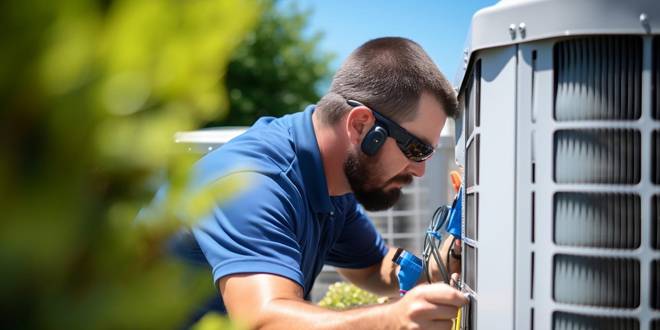
Professional Site Assessment: Consult with HVAC specialists to determine the best location for your unit, taking into account factors like natural sound barriers and the building’s architecture.
Repositioning for Effectiveness: In some cases, minor adjustments in the unit’s positioning can significantly reduce noise transmission into living or working spaces.
Professional Acoustic Analysis
For a thorough approach to noise reduction, a professional acoustic analysis can identify the root causes of HVAC noise and provide targeted solutions.
In-depth Noise Identification: A professional acoustic analysis goes beyond identifying obvious noise sources, examining the entire system to find subtle issues that contribute to overall noise levels.
Customized Noise Reduction Plan: Based on the analysis, experts can develop a customized noise reduction plan, potentially including a combination of the strategies listed above, tailored to your specific environment and needs.
Insulated Compressor Enclosures
Effective Noise Control with Insulated Enclosures
Insulated enclosures for compressors are a significant advancement in reducing HVAC noise. These enclosures are designed to minimize the sound emission from one of the loudest components of the HVAC system – the compressor.
Key Features:
- Insulation Materials: These enclosures are usually made with high-density materials that absorb sound, effectively reducing noise transmission.
- Ventilation: Despite their insulating properties, these enclosures come with proper air vents, ensuring the compressor does not overheat.
- Customization: They can be customized to fit various compressor sizes and types, ensuring maximum effectiveness.
High Static Pressure Solutions
Addressing High Static Pressure in HVAC Systems
High static pressure in HVAC systems can lead to increased noise levels. It’s essential to manage this to ensure a quieter operation.
Strategies for Reducing Static Pressure:
- Adjust Fan Speed: Properly setting the fan speed can reduce static pressure. It’s crucial to ensure the fan is not set too high, which can exacerbate noise issues.
- Ductwork Modification: In some cases, expanding the size of the ductwork, especially around the blower or furnace, can decrease static pressure and reduce system noise.
- Bypass Duct Installation: For systems with multiple zones, adding a bypass duct can help in balancing the airflow, thereby reducing noise due to high static pressure.
Advanced Soundproofing Materials
Innovative Materials for HVAC Soundproofing
Modern soundproofing materials offer effective solutions for reducing HVAC system noise.
Types of Advanced Materials:
- RoadblockR™ Dampening Material: A heavy-duty material with aluminum facing, effective in dampening sound resonance in metal ductwork.
- Soundproof Blankets: Easily applicable to HVAC systems, these blankets help block and absorb noise. They’re made from materials like reinforced fiberglass cloth and have a nonporous vinyl covering.
- Wall Insulation: Insulating walls can significantly reduce noise transmission from HVAC units. Materials like soundproofing insulation prevent sound from traveling through thin walls, creating a quieter environment.
Reducing noise from your HVAC system enhances the comfort and quality of life in your home or business. While some solutions can be simple DIY tasks, others might require professional assistance. Regular maintenance, strategic upgrades, and the use of sound-dampening materials can all contribute to a quieter, more peaceful environment. For residents and business owners in Rochester, NY, addressing HVAC noise not only improves daily living but also contributes to a more serene and productive atmosphere.
Take Action for Quiet Comfort!
🏡 Ready to transform your space into a haven of tranquility? Contact Excellent Air Heating & Cooling today! Our team is dedicated to optimizing your HVAC system for peaceful, efficient operation. 🌟 Embrace the serenity of a quieter home or office. Contact us now for a consultation and experience the difference a sound-optimized HVAC can make! ☎️🍃


